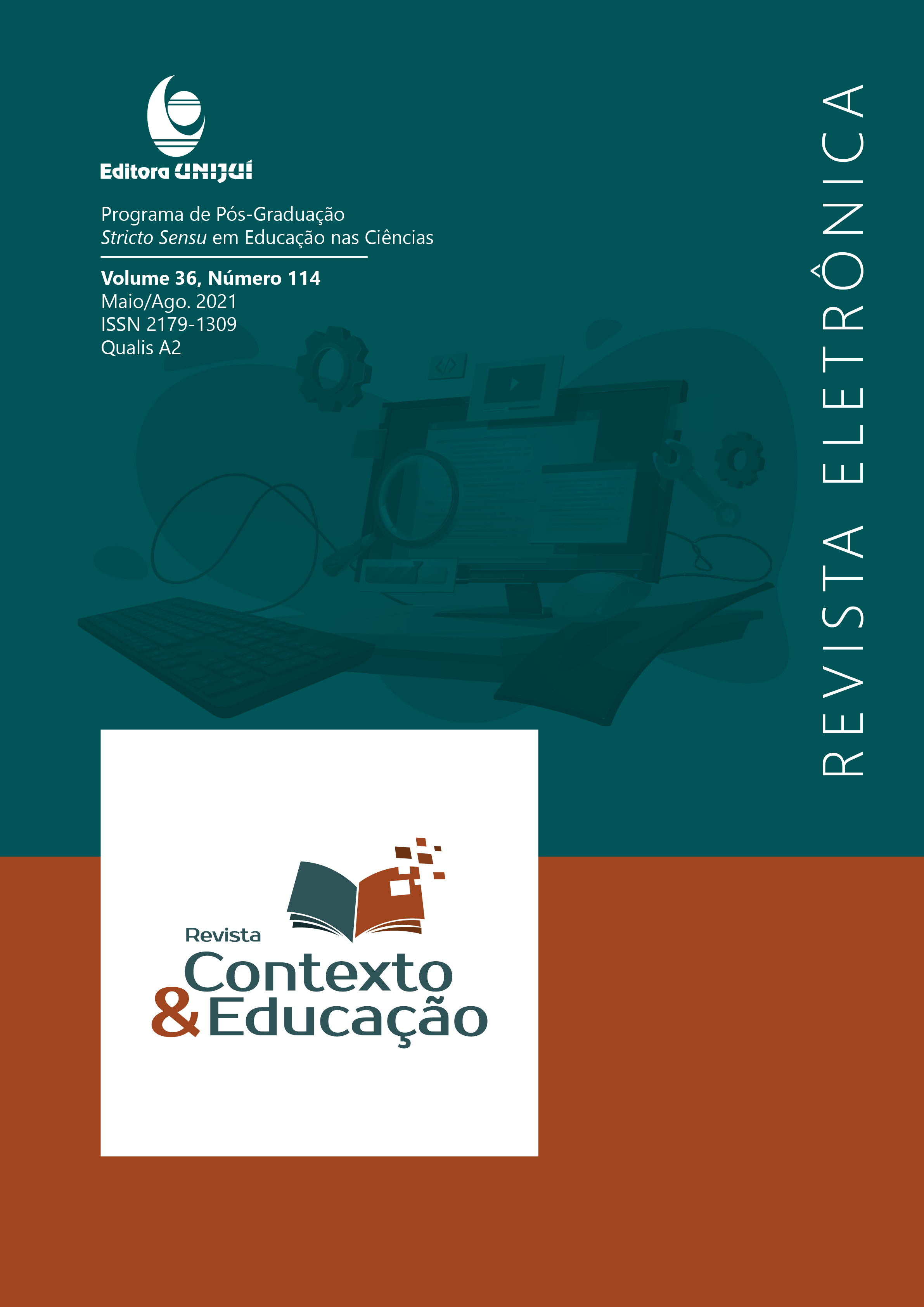O SISTEMA EDUCACIONAL INTERATIVO E AS PERSPECTIVAS DE FORMAÇÃO HUMANA DOS ALUNOS DO ENSINO MÉDIO DAS COMUNIDADES RURAIS DO ESTADO DO PARÁ
THE INTERACTIVE EDUCATIONAL SYSTEM AND THE PERSPECTIVES OF HUMAN TRAINING OF HIGH SCHOOL STUDENTS OF RURAL COMMUNITIES IN THE STATE OF PARÁ
DOI:
https://doi.org/10.21527/2179-1309.2021.114.332-350Palavras-chave:
Sistema Educacional Interativo. Currículo. Formação Humana.Resumo
Este artigo tem como objetivo analisar as perspectivas de formação humana presentes na proposta de educação implementada por meio do Sistema Educacional Interativo no Pará. A pesquisa foi realizada por meio de pesquisa bibliográfica e documental. Os principais teóricos que fundamentam a análise são: Frigotto (2010), Saviani (2013, 1982), Kosic (2011), Fereira (2015), Angeli (2009). O Sistema Educacional Interativo além de não potencializar a formação humana, aprofunda ainda mais as desigualdades sociais e regionais ao promover uma política educacional dualista urbano/rural, fragmentada e com qualidade duvidosa, pouco efetiva no desenvolvimento da formação omnilateral das populações que historicamente tiverem negado seu direito, ao acesso dos conhecimento produzidos pela humanidade. A metodologia de ensino utilizada para acesso ao ensino médio das comunidades rurais, por meio do Sistema Educacional Interativo, pouco contribuirá para a reflexão da realidade concreta desses sujeitos e consequentemente para sua transformação.
Downloads
Publicado
Como Citar
Edição
Seção
Licença
Ao publicar na Revista Contexto & Educação, os autores concordam com os seguintes termos:
Os trabalhos seguem a licença Creative Commons Atribuição 4.0 Internacional (CC BY 4.0), que permite:
Compartilhar — copiar e redistribuir o material em qualquer meio ou formato;
Adaptar — remixar, transformar e criar a partir do material para qualquer fim, inclusive comercial.
Essas permissões são irrevogáveis, desde que respeitados os seguintes termos:
Atribuição — os autores devem ser devidamente creditados, com link para a licença e indicação de eventuais alterações realizadas.
Sem restrições adicionais — não podem ser aplicadas condições legais ou tecnológicas que restrinjam o uso permitido pela licença.
Avisos:
A licença não se aplica a elementos em domínio público ou cobertos por exceções legais.
A licença não garante todos os direitos necessários para usos específicos (ex.: direitos de imagem, privacidade ou morais).
A revista não se responsabiliza pelas opiniões expressas nos artigos, que são de exclusiva responsabilidade dos autores. O Editor, com o apoio do Comitê Editorial, reserva-se o direito de sugerir ou solicitar modificações quando necessário.
Somente serão aceitos artigos científicos originais, com resultados de pesquisas de interesse que não tenham sido publicados nem submetidos simultaneamente a outro periódico com o mesmo objetivo.
A menção a marcas comerciais ou produtos específicos destina-se apenas à identificação, sem qualquer vínculo promocional por parte dos autores ou da revista.
Contrato de Licença (para artigos publicados a partir de outubro/2025): Os autores mantém os direitos autorais sobre seu artigo, e concedem a Revista Contexto & Educação o direito de primeira publicação.


